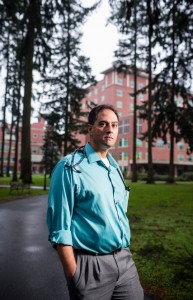Doctors Unionize to Resist the Medical Machine
An Oregon medical center’s plan to increase efficiency by outsourcing doctors drove a group of its hospitalists to fight back by banding together.
Articolo di Noam Scheiber sul New York Times
Early in the morning on Aug. 12, 2015, a 68-year-old man named Barry turned up at PeaceHealth Sacred Heart Medical Center in Springfield, Ore., confused and feverish.
The case was not a candidate for even a minor subplot on “House.” The admitting doctor stopped one of the patient’s medications and inserted an IV to deliver fluids, and by late the next morning, he had largely recovered.
Still, Dr. Rajeev Alexander, the hospitalist who took over his care, was determined to make an accurate diagnosis.
For nearly half an hour, Dr. Alexander, a perpetually rumpled man, chatted with Barry and Linda, his sister, about the events that had landed him in the hospital, the food processing plant where he once worked, the stroke that had impaired his mind. “It was a very scary night last night,” Linda, his caretaker, said. “He was just sitting on the floor, like you would sit a 6-month-old when they haven’t got their balance.”
Dr. Alexander considers it proper technique to review each mundane detail with a patient. He is full of scorn for the eureka style of medical diagnosis depicted on television, and by his own admission, he reads a CT scan with the sophistication of a barber.
Eventually, Dr. Alexander would discard the more exotic theories that had crossed his mind — meningitis, or possibly a condition known as serotonin syndrome — and settle on a far simpler malady: dehydration, which aggravated a chronic kidney problem.
He was nonetheless unapologetic about the time he had invested.
“Real life is all about the narrative,” he said. “It’s sitting down and talking about bowel movements with a 79-year-old woman for 45 minutes. It’s not that interesting, but that’s where it happens.”
Dr. Alexander’s method is at the center of an emotional debate in medicine, in which the imperative to increase efficiency in a high-cost health care system is often at odds with the deference traditionally accorded to doctors. continua a leggere





